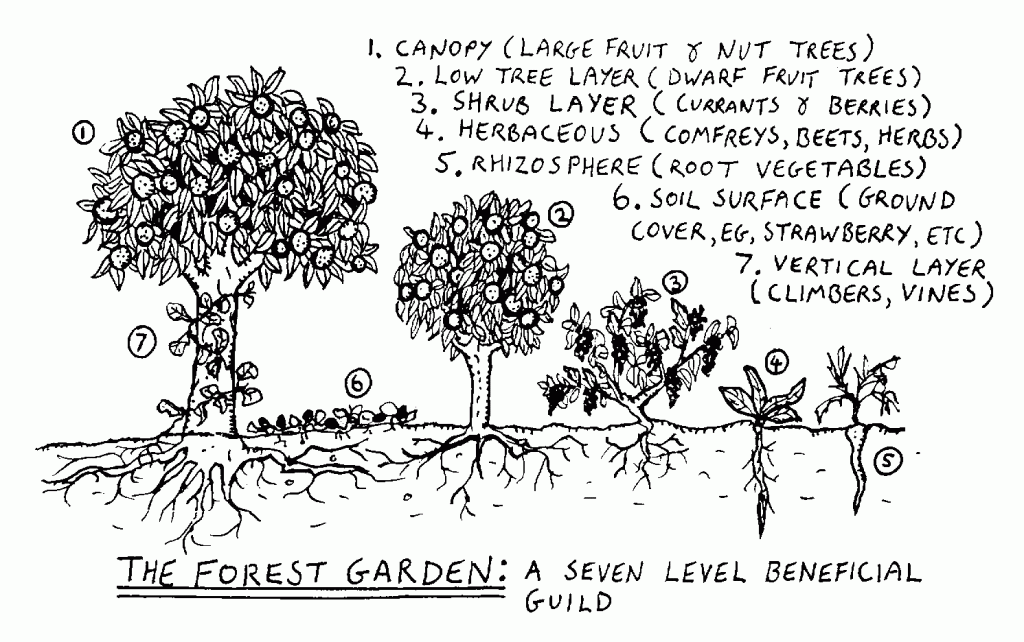What is an urban food forest. Well, let’s first talk about the definition of a food forest. It is a gardening or land management system that mimics a woodland ecosystem substituting edible trees, shrubs, perennials and annuals. It is, in part, based upon permaculture techniques that require relatively low maintenance and are sustainable. The layer concept is widely used, as is a staged process, whereby nitrogen-fixing plants are introduced for short, medium, and long-term soil amending. The layers in the food forest can be as many as 7 to 9 with the top layers being nut-bearing shade trees. Here is a diagram of the 7-layer food forest concept.
So, how can this be applied to the urban setting? The answer is one property at a time and with cooperation from neighbors, community groups, and local governments. Each person may choose to be involved by creating their own garden and by sharing resources. You may not have a nut tree in your yard, but your neighbor may. That tree will provide shade for your dwarf pear tree. You may not have room in your yard to have both a male and female plant for pollination but your city government may be will to plant three or four male plants on park property, which will then allow 30 females to bare fruit. One neighbor may have a low for birds, while another may wish to keep bees. Allow these neighbors, who provide the pollinating and pest control creatures to share in your abundance. The local government may provide a locale for a high tunnel, in which to germinate seedlings that may be shared. Others may whish to specialize in certain varieties vegetables while others may wish to care for fruit bushes such as blueberries. All of this requires planning and cooperation: abundance for all.
Cereus Solutions has already taken the first steps by beginning a dialog with the North Little Rock Tree Commission and the Planning Commission. We have begun extensive research on native plants, while partnered with Maison Terre, which sells organic herbs and spices from exotic locales. Maison Terre is, in turn, partnering with Willow Springs Gardens and others to germinate species that may thrive here in this climate. It is our goal that downtown North Little Rock become a model of this kind of urban food forest, full of nut trees, fruit trees, shrubs and bushes full of edible berries, elderberries, sweet potatoes, clovers, strawberries, schizandra, ginseng, and more. The possibilities are endless.
Hoop houses must be built, equipment must be bought, seeds procured, and supplies gathered. Contributing to this project will give generations a new perspective on the very definitions of garden, food, and forest. It will also ensure a healthy and enriched diet for generations and a spirit of cooperation and community. To give to this project, please click on the donate button in the top right corner of this page.


